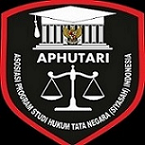Jual Beli Durian Busuk Di Tinjau Dari Fiqh Muamalah
Abstract
In daily life, humans are required to always practice Allah's practice as an aspect of spiritual life, as well as to always practice habl min an-nas as an aspect of material life. Human life is never separated from the muamalah field as a social relationship between humans in meeting all their daily needs.Based on the above background, the purpose of this study is to know how the practice of buying and selling rotten durian and how the practice of buying and selling rotten durian is reviewed from fiqh muamalah. Based on the above background, the purpose of this study is to know how the practice of buying and selling rotten durian and how the practice of buying and selling rotten durian is reviewed from fiqh muamalah.This research is a field research using primary data and secondary data, and data collection in this study uses the observation method, interview method and documentation method.Based on the results of the above research, it is found that the practice of buying and selling rotten durians at the time of the sale and purchase agreement in Silaiya Village, Sayur Matinggi District, South Tapanuli Regency, the seller informed the buyer that the fruit he was selling was damaged fruit. However, in the practice of buying and selling rotten durians, the durian being traded has no measure or scale only by estimating the price, this kind of buying and selling is not allowed in Islam because every object being traded must have clear prices, quality and scales. or measure.
Keywords
Full Text:
PDFReferences
Referensi
A. Sumber Buku
Abdul Rahman Ghazali, et al. Fiqh Muamalat, Jakarta: Kencana Prenada Media Group, 2010.
Mardani, Fiqih Ekonomi Syariah, Jakarta: Kencana Media, 2012.
Mustad Ahmad, Etika Bisnis Dalam Islam, Jakarta: Pustaka al-kaustar, 2003.Soharni Sahrani, Fiqih Muamalah, Bogor: Ghalia Indonesia, 2002.
Rachmat Syafe‟i, Fiqh Muamalah,Bandung: Pustaka Setia,2004.
B. Sumber Jurnal
Adanan, Oleh, and Murroh Nasution. “Konsep Pasar Yang Islami.” Jurnal Al-Maqasid 4 (2018): 126–44.
Ahmatnijar. “Paragmatisme Hukum Islam|Ahmatnijar.” Yurisprudentia; Jurnal Hukum Ekonomi 1, no. 2 (2015): 1–16.
Harahap, Ikhwanuddin. “Memahami Urgensi Perbedaan Mazhab Dalam Konstruksi Hukum Islam Di Era Millenial.” Jurnal Al-Maqasid 5, no. 1 (2019): 1–13.
Hasiah. “Syirik Dalam Perspektif Al-Qur’an.” Yurisprudentia 3 (2017): 83–102.
Nasution, Adanan Murroh. “Batasan Mengambil Keuntungan Menurut Hukum Islam.” Jurnal El-Qanuniy: Jurnal Ilmu-Ilmu Kesyariahan Dan Pranata Sosial 4, no. 1 (2018): 88–100. https://doi.org/10.24952/el-qonuniy.v4i1.1829.
Nasution, Muhammad Arsyad. “Pendekatan Dalam Tafsir (Tafsir Bi Al Matsur, Tafsir Bi Al Ra’yi, Tafsir Bi Al Isyari).” Jurnal Yurisprudentia 4, no. 2 (2018): 147–65.
Siregar, Fatahuddin Aziz. “Ciri Hukum Adat Dan Karakteristiknya.” Jurnal Al-Maqasid 4, no. 2 (2018): 1–14.
Siregar, Sawaluddin. “Hakikat Kuliah Kerja Lapangan Dan Perubahan Masyarakat Kec. Dolok Kab. Padang Lawas Utara.” Jurnal Al-Maqasid 5, no. 2 (2019): 230–42.
Siregar, Syapar Alim. “Pengedar Narkoba Dalam Hukum Islam.” Jurnal Al-Maqasid 5, no. 1 (2019): 111–24.
DOI: https://doi.org/10.24952/el-thawalib.v1i2.3226
Refbacks
- There are currently no refbacks.









Editorial Office Board :
Kampus UIN Syekh Ali Hasan Ahmad Addary Padangsidimpuan
Jl. T Rizal Nurdin No.Km 4, RW.5, Sihitang, Padangsidimpuan Tenggara, Kota Padang Sidempuan, Sumatera Utara 22733
 Jurnal El-Thawalib is licensed under a Creative Commons Attribution-ShareAlike 4.0 International License.
Jurnal El-Thawalib is licensed under a Creative Commons Attribution-ShareAlike 4.0 International License.
View My Stats






